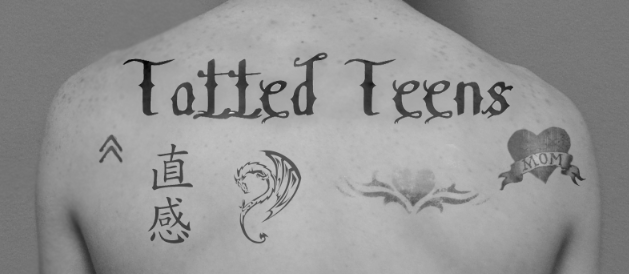When talk show host Wendy Williams asked reality star Kim Kardashian if she had any tattoos, Kardashian responded, “Would you put a bumper sticker on a Bentley?”
While some students, like Kardashian, think that tattoos deface one’s body, others see them as a form of self-expression and appreciate them for their individuality.
“The Bentley will remain a Bentley no matter what,” said Jayla Rufus-Milner ’18, who has three tattoos. “The bumper sticker adds personality and character to the car; without it, the Bentley would be indistinguishable against any other Bentley.”
According to a study conducted by The Harris Poll, a market research firm, there has been a 10 percent increase in the number of Americans getting tattoos over the past four years. Given this increase, the dichotomy of perceptions of tattoos is becoming more and more prevalent. In addition, approximately 25 percent of Harvard-Westlake students said in a Chronicle poll out of 389 students that they plan on getting a tattoo at some point in their life.
Jayla Rufus-Milner and her twin sister Jayda Ruffus-Milner ’18 have three matching tattoos, the first of which they got in Nevada with their mother when they were 15 years old. According to California Penal Code 653, it is a misdemeanor for a minor to get a tattoo in the state of California. In most regions of Nevada, however, a minor age 14 or above can get a tattoo if he or she has parental consent, according to the Southern Nevada Health District.
“[My mom] has many tattoos herself and believes tattoos are just another way to express yourself. It is another form of art,” Jayla Ruffus-Milner said. “As long as our tattoos have a positive meaning behind it, she will be supportive of them.”
Other students’ parents, however, are less supportive of their child getting tattoos, leaving them to get a tattoo through illegal means.
Amy* ’17, who wished to remain anonymous for legal reasons, got a tattoo when she was 17 years old using her fake ID last year. She said the decision was made in the spur of the moment, and she knew her parents would not give her permission like the Ruffus-Milners’ mother did.
Though Amy’s tattoo was spontaneous, she said it has a lot of meaning to her and is not something she regrets. Her tattoo, she said, references something from a difficult time in her life and serves as a reminder to her to always stay positive.
“I always wanted one, and I will get more,” Amy said. “I like the idea of placing art on myself that has meaning.”
Jayla Ruffus-Milner said her and her sisters’ tattoos all hold significant meaning to them as well. For their first tattoo, Jayla Ruffus-Milner got the Yang half of the Yin-Yang symbol on her wrist, while Jayda Ruffus-Milner got the Yin. This tattoo, Jayla Ruffus-Milner said, was meant to remind them that they will always be there for each other.
The next tattoo they got was the word “excelsior,” which translates to “ever upward” in Latin, with an arrow going through it, on the outside of their lower left arms.
“It is basically our life motto because we believe in always looking at the positive even in very tough situations, and there have been many,” Jayla Ruffus-Milner said. “It is a constant reminder to ourselves and to those who bother to ask to continue to see things in a positive light.”
Their third and most recent tattoo is of a Celtic knot on their upper right arms, which their mother has as well. This tattoo, Jayla Ruffus-Milner said, represents their family and how they support each other.
Ian* ’18, who is a minor, is planning to get a tattoo next month using a letter of consent from his mom. If that doesn’t work, he plans on using his fake ID, he said.
Similar to the Ruffus-Milners and Amy, Ian’s tattoo will hold a personal meaning to him.
“Someone incredibly close to me died, and I wanted to honor her with the tattoo,” Ian said.
Despite the permanence of the tattoos, neither Jayla Ruffus-Milner nor Amy said that they regret getting their tattoos.
“We never worried about the permanency of the tattoos because we have always took a lot of time to consider what we wanted on our bodies so that we would never get anything we would regret,” Jayla Ruffus-Milner said. “We understand that they will be on our bodies for the rest of our lives and that was the entire point of getting one – so that the message of the tattoo is always there.”
Despite the sometimes negative societal connotations of tattoos, she said she and her sister will likely get more so they can continue expressing themselves.
“Tattoos do not damage the image of people but rather clarify it by allowing one’s inner self to be expressed on the outside,” Jayla Ruffus-Milner said. “Everyone should be able to express themselves in positive ways without having to fear the judgment of others.”
*Names have been changed



































